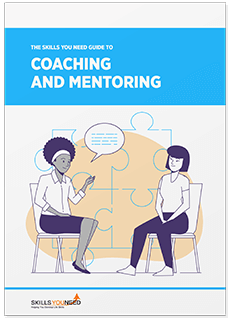6 Soft Skills Teachers Must Hone
to Succeed in The Education Sector
See also: Teaching Skills
In the ever-evolving academic landscape, becoming an effective teacher requires more than textual subject knowledge and classroom management skills. Today, the education sector demands teachers possess essential soft skills that enhance their ability to connect with students, engage them in meaningful learning experiences, and create a positive and inclusive classroom environment.
This article will explore six crucial soft skills teachers must hone to succeed in the education sector.

1. Communication Skills
The foundation of teaching is effective communication, including verbal and nonverbal. Competent instructors explain their concepts accurately and clearly to pupils, breaking down difficult material into manageable parts. They appreciate their students' opinions and encourage engagement by carefully listening to their questions, worries, and concerns.
Another crucial component of effective communication in education is constructive criticism. Teachers provide students with detailed feedback that emphasizes their strengths and identifies areas for development, assisting them in growing and improving. Good instructors also acknowledge students’ varying backgrounds, talents, and learning styles. To engage every student in the classroom, they use various communication techniques such as visual aids, hands-on exercises, and EdTech tools.
Fostering open communication and being respectful to one another is essential for creating a positive learning environment in the classroom. Disagreements or obstacles are dealt with constructively, and different viewpoints are appreciated when communication barriers are reduced through open communication.
2. Empathy and Emotional Intelligence
Empathy and emotional intelligence are crucial skills for teachers. Creating a safe education environment is fundamental to effective teaching, and empathy is crucial for this purpose. When teachers exhibit empathy, pupils feel respected, welcomed, and understood. A safe learning environment promotes engagement, encourages risk-taking, and boosts teamwork, allowing students to excel socially and intellectually. By pursuing further education and special training, teachers can gain insights into inclusive education and diversity, enabling them to develop a safe and supportive learning environment tailored to individual student needs.
Similarly, emotional intelligence has become an in-demand skill most employers seek in instructors and academic leaders. Teachers with emotional intelligence capabilities can better identify and meet each student's emotional requirements.
3. Adaptability and Flexibility
The COVID-19 pandemic exemplified the need for teachers and the academic sector to embrace adaptability. Adaptable and flexible academicians are better prepared to alter their teaching practices and strategies in response to transforming environments. Flexible teachers recognize that students come from all backgrounds and learn in various ways, and they modify their lessons to accommodate each student's unique learning preferences. To engage various students, they use different and unconventional techniques, including visual aids, hands-on exercises, or collaborative projects during lessons.
Most importantly, adaptable teachers recognize the significance of responding to multiple intelligences within the classroom. They assess students' skill levels and multiple intelligences and provide appropriate support accordingly. Multiple intelligences theory requires teachers to address the varying intelligence of a student, from spatial-visual, to musical, interpersonal, and linguistic. This may necessitate implementing differentiated instruction, personalized learning plans, or individualized interventions tailored to each student's needs.
Embracing new technologies and methodologies is also a key element of being adaptable. Teachers should stay informed about educational advancements, incorporating digital resources, innovative teaching techniques, and relevant tools into their practice.
4. Patience and Resilience
Patience and resilience are indispensable traits to successfully navigating the academic sector’s challenges. By understanding that each student has a unique learning style, teachers can support their student's development and growth. They can also devise individualized instruction plans suited to each student’s learning capacity.
Resilient teachers can bounce back from failures and maintain a positive mindset in facing difficulties. They demonstrate a drive to find solutions and view obstacles as opportunities for growth and improvement. Furthermore, adaptable educators actively seek support, adjust their approaches, and persist in their efforts to ensure their students' success.
Furthermore, such adaptability fosters an environment conducive to learning. Resilient teachers promote a culture of resilience by demonstrating to pupils that setbacks are transient and manageable. They establish an environment of understanding and support where students feel valued and driven to learn.
5. Collaboration and Teamwork
Since education is a joint endeavor requiring the cooperation and coordination of several stakeholders, collaboration and teamwork are essential components of the teaching profession. By coordinating their efforts, instructors may ensure that the curriculum, teaching approaches, and assessment techniques are consistent and coherent. Working together, instructors may access a plethora of information and expertise, sharing creative lesson ideas, teaching methods, and classroom management strategies. This idea and resource exchange encourages ongoing growth and aids teachers in staying up to date with educational trends and advancements.
But to meet the unique requirements of pupils, cooperation also demands multidisciplinary teamwork, in which teachers interact with experts and professionals from other fields. Instructors can offer complete assistance and a holistic approach to education by drawing on the knowledge of counselors, psychologists, special education instructors, and other experts.
In addition to collaborating with fellow educators, teachers foster a strong home-school partnership by working collaboratively with parents and guardians. Open communication, shared information, and collaborative goal-setting create a supportive network that enhances students' overall development and academic success.
6. Time Management and Organization
Teachers who manage their time well can better plan and prepare interesting classes that meet curricular requirements and different student demands. Teachers may maximize instructional time and improve student learning experiences by setting aside time for lesson planning. It allows them to organize teaching materials carefully, acquire relevant resources, and develop engaging activities. Additionally, evaluating student work is an essential component of teaching, and good time management skills enable teachers to designate distinct timeslots for marking homework, exams, and projects. As a result, teachers may identify areas for growth, provide pupils with immediate feedback, and modify their educational tactics as necessary.
Teachers must also schedule meetings, work with colleagues, and participate in professional development activities. Teachers may actively participate in professional growth opportunities and remain abreast of current educational trends by setting priorities and efficiently using their time.
Time management skills also help educators maintain a healthy work-life balance. Teachers may prevent burnout and job overload by organizing their schedules and setting priorities.
Further Reading from Skills You Need
The Skills You Need Guide to Personal Development
Learn how to set yourself effective personal goals and find the motivation you need to achieve them. This is the essence of personal development, a set of skills designed to help you reach your full potential, at work, in study and in your personal life.
The second edition of or bestselling eBook is ideal for anyone who wants to improve their skills and learning potential, and it is full of easy-to-follow, practical information.
Conclusion
The academic sector of today demands teachers and educational leaders to hone essential soft skills alongside textual knowledge and expertise. By developing key soft skills, educators may improve their overall performance in education and create inclusive and engaging learning environments for their students. Teachers may excel in their positions and have a long-lasting effect on their students' lives by developing these qualities.
About the Author
Ronald is an enthusiastic writer who enjoys sharing his work in a variety of domains, including business, healthcare, and education. He is devoted to the ideas he shares online and always contributes something noteworthy.


